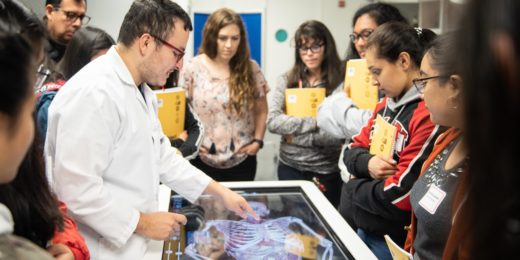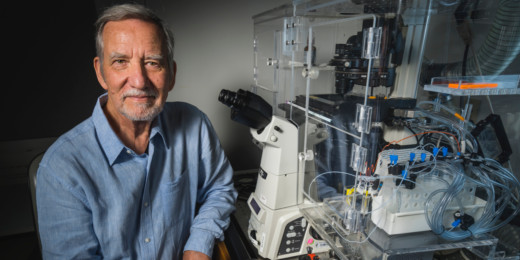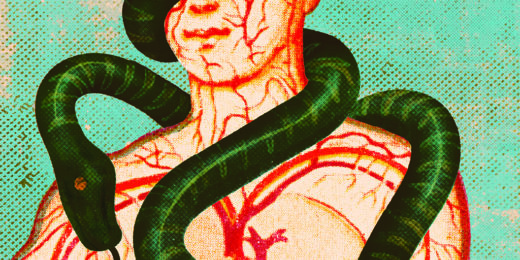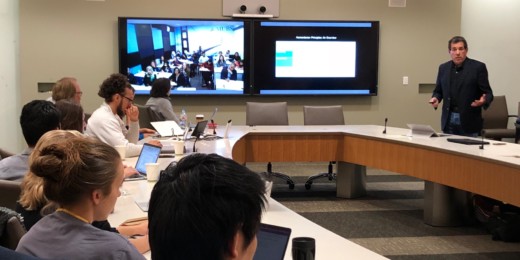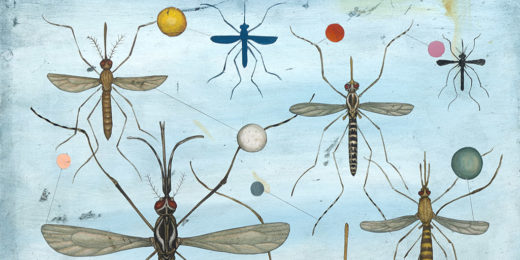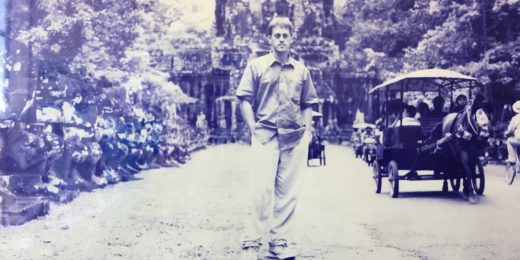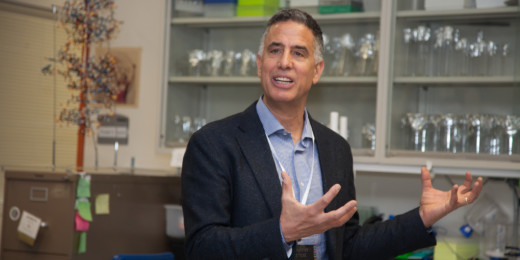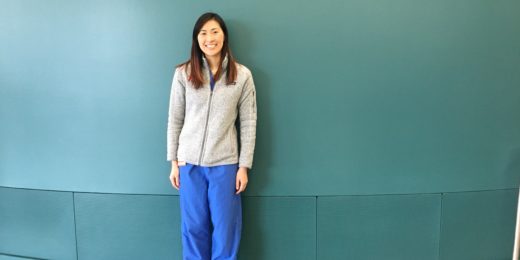Local high school students came to Stanford for a day to sample life as a medical student as part of the Med School 101 event.
Month: March 2019
What chemicals or critters do you encounter daily? Stanford researchers are taking a look
Stanford researcher Michael Snyder describes his work cataloging the vast number of environmental particulates individuals are exposed to.
Colorectal cancer screening at age 45: What difference could it make?
Study finds that starting colorectal cancer screening at age 45 would avert deaths, but testing more older people would be more beneficial.
Mystery novel, prophetic dream, decades of work spur breakthrough in hypertrophic cardiomyopathy
One night Jim Spudich knocked off a few chapters of a murder mystery before falling asleep, to awaken with a vision that would solve a medical mystery.
Proceed with caution before changing colonoscopy recommendations, Stanford physician urges
A push to personalize medicine can backfire when it comes to screening for colorectal cancer, says a Stanford gastroenterologist.
Make it stop: New frontiers in pain research offer hope
A Stanford anesthesiologist is working to understand why pain becomes agonizing and chronic by examining the role of cells known as microglia.
Have a medical student in your life? That’s a good thing
In this Stanford Medicine Unplugged piece, writer Nathaniel Fleming shares how he responds to requests for medical advice from friends or family.
Doctors share story of daughter’s treatment for leukemia
Editors note: The family has requested removing the video to protect their daughter's privacy. We apologize for the inconvenience.
A medical mystery: Diagnosing dead artists by their works of art
Doctors are trying to solve the mysteries surrounding the health of famous artists such as Leonardo da Vinci by examining their art.
In virtual exchange, students in California and Lebanon unite to improve refugee health
In the fall of 2018, videoconferencing helped unite 23 Stanford students with 23 fellow students in Beruit, Lebanon, and provided the opportunity to co-develop a project that could help improve refugees’ lives and health.
Mosquito tracking key to preventing disease outbreaks
Infectious disease expert Desiree LaBeaud is mapping outbreaks of Zika, dengue and chikungunya, three viral diseases transmitted by the same mosquitoes.
Translating horror into justice: Stanford psychiatrist advocates for human rights
A Stanford interdisciplinary program provides evidence of the mental health pathology caused by trauma to legal teams prosecuting human rights violators.
Computer vision technology could aid ICU care by spotting movement
Stanford researchers are tackling the problem of post-intensive care syndrome with artificial intelligence technology that detects patient mobility.
Supporting “curiosity-driven research” at the Discovery Innovation Awards
Stanford Medicine's Discovery Innovation Awards provide funding for faculty members pursuing basic science that is "high-risk, high-reward."
Climate change can affect nutrient content of crops, harming human health
Elevated carbon dioxide levels may lead to reductions in the nutrients in common crops such as barley, wheat and rice, increasing malnutrition.
In the Spotlight: From dietitian to physician assistant student
This In the Spotlight features Patricia Lee, a former dietitian who is now a second-year student in Stanford Medicine's physician assistant program.


